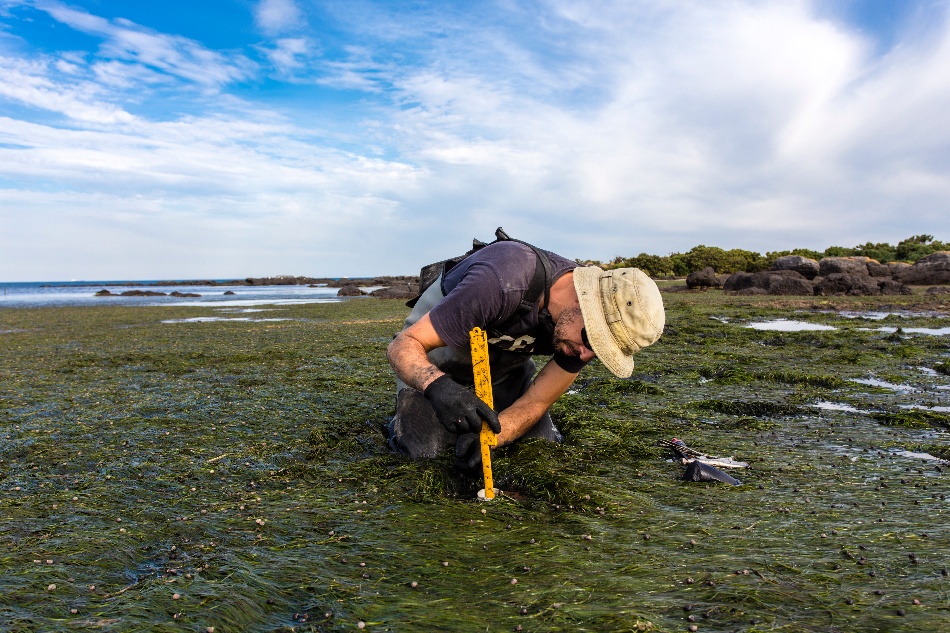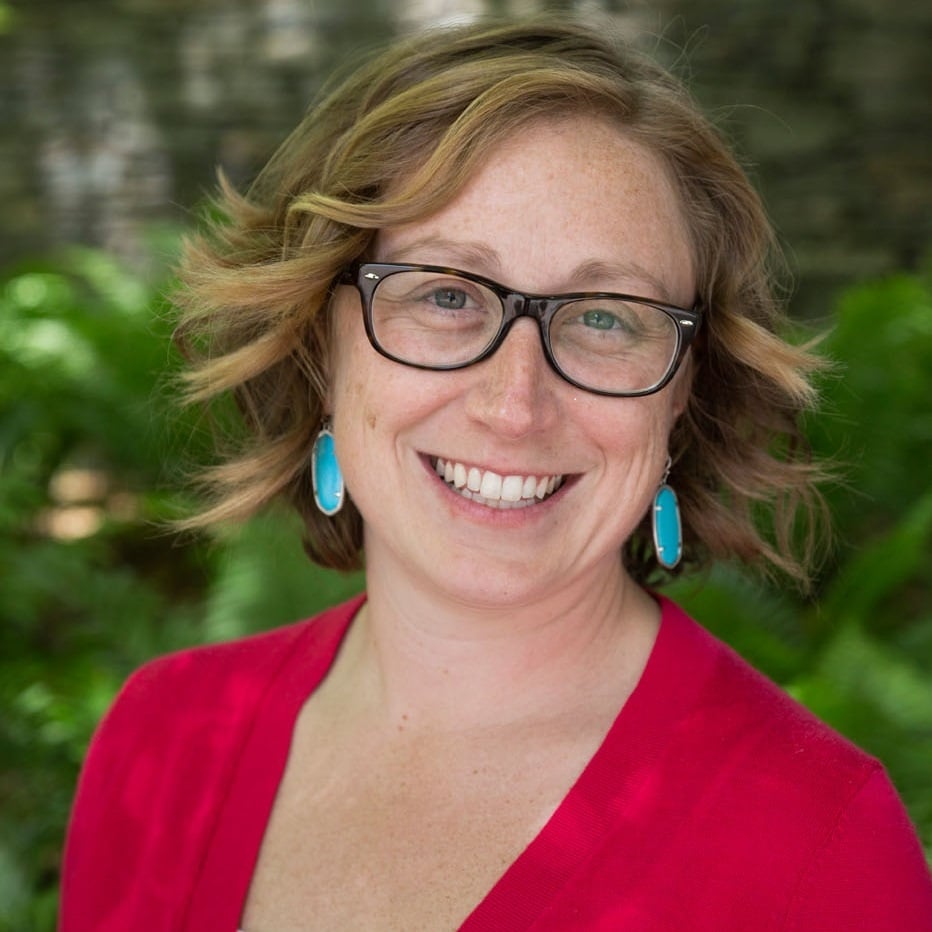What Can Bard GPS Students Expect From Their Internships?

At Bard Graduate Programs in Sustainability, hands-on, high-impact sustainability internships are a core part of the curriculum. All students in our MS in Environmental Policy, MS in Climate Science and Policy, and MEd in Environmental Education programs complete a four- to six-month professional internship—an immersive experience that allows them to apply their classroom learning to real-world sustainability challenges.
These internships do more than build résumés—they launch careers. Many Bard students trace their professional success back to their sustainability internships, where they had the opportunity to lead projects, influence policy, and make a measurable impact. Each year, 30–50% of internships result in job offers, with even more students gaining the experience and network they need to break into the field.
Curious what this might look like for you? Keep reading to explore how the internship experience helps Bard MS and MEd students turn knowledge into action and impact.
Request more information about Bard GPS>>
Sustainability Internships at the
Center for Environmental Policy (CEP)
At Bard CEP, our master's programs are small by design. As a result, students benefit from one-on-one engagement with faculty. Professors get to know your interests, motivations, and career goals, then support you in identifying internship opportunities that align with your unique skills and aspirations.
During your first year at Bard, you’ll engage in courses that intentionally prepare you for the internship experience and your final capstone project.
How the CEP Sustainability Internship Experience Works
Let’s cover the basics:
-
When: Internships run between June and January of your second year, giving you time to make a real impact and gain substantial experience.
-
How: From your first semester, you'll receive tailored guidance from advisors and faculty to explore opportunities, sharpen your focus, and pursue placements that suit your career goals.
-
Where: Internships are global. Bard students have worked in New York, Washington D.C., Mexico, China, Germany, Australia, and beyond.
-
Who: Our network includes organizations in government, nonprofits, international agencies, and the private sector. Many are long-time partners with Bard and actively recruit our students.
Stories from CEP Internships
 Nick Martin, '18 — M.S. in Environmental Policy
Nick Martin, '18 — M.S. in Environmental Policy
Research InternDevelopment Alternatives, 📍India
Nick Martin graduated with a degree in Environmental policy, and he credits Bard’s internship program with helping him develop his professional and personal skills. He interned both at the World Resources Institute in Washington D.C. and in New Delhi, India at Developmental Alternatives.
Jessica LeClair, '12 — M.S. in Climate Science and Policy
Arctic/Renewable Energy Intern, Northern Alaska Environmental Center, 📍Alaska
Jessica had an “invaluable experience” at Bard, learning how to make decisions that would directly impact her local and global community. She feels that “Bard CEP puts graduates out in front of the curve”.
 Patricia Hanna, '23 — M.S. in Climate Science and Policy
Patricia Hanna, '23 — M.S. in Climate Science and Policy
Patricia knew she wanted to stay local and get involved in the legislative field of climate policy. Bard faculty and staff helped connect her with alumni in the area, and one of Patricia’s emails back in October of her first year landed her a second-year internship. Her advice?
“Start early and use Bard CEP staff and faculty as a resource. So many of them know who’s in this space or have connections all over the world. They are able to point you in the right direction.”
 Jae, '23 — M.Ed. in Environmental Education
Jae, '23 — M.Ed. in Environmental Education
Youth Environmental Advocates Program Developer, Mbis Bin Semilla para la Siembra AC 📍Mexico
Jae shared this about how they felt regarding faculty involvement in the internship process:
“One of the great things about Bard’s approach is that I always felt supported but I never felt crowded. We received excellent training in writing resumes and cover letters as well as in navigating interviews with confidence. We were expected to take personal responsibility for finding a position and ask for help if we needed it.”
Choosing Your Focus – And the right sustainability internship
Before you begin exploring internship options, the most important question to ask yourself is: Where do I want to make change? At Bard CEP, your internship experience is shaped by your program—and your program reflects your passion. Are you drawn to advocating for new policy and confronting systems-level environmental challenges? Or are you called to education and shaping how people understand and care for the planet?
- If your path is policy and science → You're focused on changing the rules (MS in Environmental Policy or MS in Climate Science and Policy)
- If your path is education and engagement → You're focused on changing minds (MEd in Environmental Education)
Once you’ve identified where you want to lead change, your faculty and advisors will help you find the internship that fits—one that builds your skills, connects you with mission-aligned partners, and moves you closer to your career goals.
Not sure where you fit yet? Take our quick quiz to find your focus.
Bard CEP
No matter which program you choose, Bard CEP combines academic depth with real-world immersion. Each two-year master’s degree includes:
- Year One: Small classes, interdisciplinary coursework, and personalized faculty advising
- Year Two: A 4- to 6-month full-time internship and a final capstone project
- Global opportunities: Internship opportunities across the U.S. and around the world, with the option to integrate Peace Corps service
- Career readiness: Built-in professional development to support your job search, from résumé building to networking
So, what change do you want to lead? Keep reading to explore how each Bard CEP program prepares you to turn your passion into impact through hands-on internships, faculty mentorship, and a career-aligned graduate experience.
Master of Science in Environmental Policy
The MS in Environmental Policy prepares students to address today’s most pressing environmental challenges by developing innovative, evidence-based policy solutions. In your first year, you’ll build a strong foundation in economics, law, science, and systems thinking. In year two, you’ll complete a full-time, 4–6 month internship that often becomes the basis for your final capstone project.
Environmental Policy students have interned with organizations like:
- American Museum of Natural History
- Centers for Disease Control and Prevention
- Ecologic Institute in Germany
- Malawi Sustainable Agriculture Project
A key feature of this program is a 10-day immersive field course in Oaxaca, Mexico, where students partner with local organizations on sustainable development initiatives. Closer to campus, you’ll collaborate with Hudson Valley communities on real-world environmental justice issues, such as water quality and access.
Graduates go on to environmental policy careers as policy analysts, nonprofit strategists, environmental advocates, and public sector leaders—working to shift systems and rewrite the rules for a more sustainable future.
Master of Science in Climate Science and Policy
The MS in Climate Science and Policy prepares students to navigate the intersection of climate science, data analysis, and public policy. Like the MS in Environmental Policy program, it pairs the academic foundation of year one with a second-year professional sustainability internship.
Students from this program have interned at:
- The Nature Conservancy
- The World Health Organization in Germany
- Center for Disease Control and Prevention
This program prepares graduates for roles as climate policy advisors, resilience planners, environmental researchers, and program managers—professionals who understand both the science and the systems that drive sustainable change.
For more information from alumni who have completed this program, watch the video below.
Master of Education in Environmental Education
The MEd in Environmental Education trains educators to build environmental awareness and empower people of all ages to care for the planet. In your first year, you’ll take classes in both environmental studies and teaching methods—drawing from both Bard CEP and the Master of Arts in Teaching program—while participating in immersive field-based learning trips. The second year centers on the 4–6 month professional, followed by a capstone project that brings your learning full circle.
Past internships have included:
- Radix Ecological Sustainability in Albany, NY
- U.S. Department of Agriculture
- Environmental Protection Agency (EPA)
Graduates go on to become environmental educators, curriculum developers, camp directors, and nonprofit education coordinators—leaders who are shaping how communities learn about and engage with the natural world.
Want even more information about where a graduate degree in sustainability from Bard can take you? Download our Sustainability Programs for Climate Champions guide today!


-891746-edited.jpg?width=365&name=PROOF_PM_BardMBA_NYC_05-13-16_MG_3854_PROOF(1)-891746-edited.jpg)

